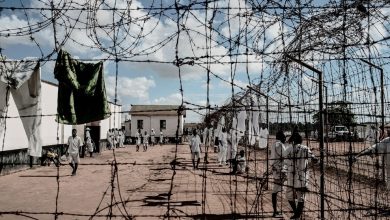Careless talk has consequences
The next three weeks will be interesting in the drama that has been the run up to May 21 tripartite elections.
Those citizens whose vested interests in this election will end at casting their vote and for others participating in a protest or two when their candidate loses, are watching, could not care less about the candidates going forward.
The next three weeks present an opportunity to the presidential candidates to convince those undecided voters who the Institute of Public Opinion and Research (IPOR) released in October last year put at 11 percent and 11 percent who refused to answer which party they would vote for if elections were held during the survey.
The podium pronouncements and allegations are now reaching ridiculous proportions, from a change of working hours to reduce by one hour to benefit less than 200 000 people in the civil service to revelations of a plot to cover up the DPP loss of Lilongwe City South East constituency in the last election.
At this stage it is safe to say that most voters have already made up their mind. But there remains a pocket of registered voters who over the last two months have become disillusioned by the actions of candidates on the campaign trail.
Any candidate worth his salt who started out on this journey with a clear campaign strategy would aim to reach these voters and make them a fresh offer.
But a strategy that aims to ‘erase footsteps’ as some political parties have been doing will not and cannot work in these coming three weeks.
If the UTM has reasons for targeting rural Central Region, that reason can certainly not be the same for Malawi Congress Party or Democratic Progressive Party.
If the political parties are using 2014 election results, then they are completely deluded. The party that wins this election will have studied the results and factors that led to those results going back to at least 1999 election.
Over these elections, it has been proven that regionalism or tribalism is not always a factor that gets a candidate votes: 1999 and 2009 elections inform any political party of that fact.
Material handouts, whether in the form of party cloth, money or maize branded in the ruling party colours will not win anyone an election, a simple look at the 2014 campaign trail will tell a story.
Similar promises were made in 2014, bicycles and motorbikes were distributed, the amount of party cloths and regalia could cover the length and breadth of this country easily but this was not enough to get incumbent Joyce Banda even a second position.
So, incumbency has not worked, distributing maize and motorbikes has failed miserably and people of the Central and Northern regions have not always voted for someone who comes from their tribe or region.
Considering that there has not been consensus on why Malawians voted in that manner in 2014, at this stage it is anybody’s game and it is a grave mistake for any of the top four to undermine each other.
It is folly for presidential candidates at this stage to enter into pointless mudslinging and unsubstantiated allegations of rigging. If anything, such careless talk just further alienates the electorate and increases chances of voter apathy on May 21.
All the presidential candidates need every vote that can be cast and should be doing everything within their means to lure the undecided voters.
It would be advisable for the candidates, especially DPP’s Peter Mutharika and UTM’s Saulos Chilima to desist from talk of rigging, past or future, if they really want to rule this country come May 21.


